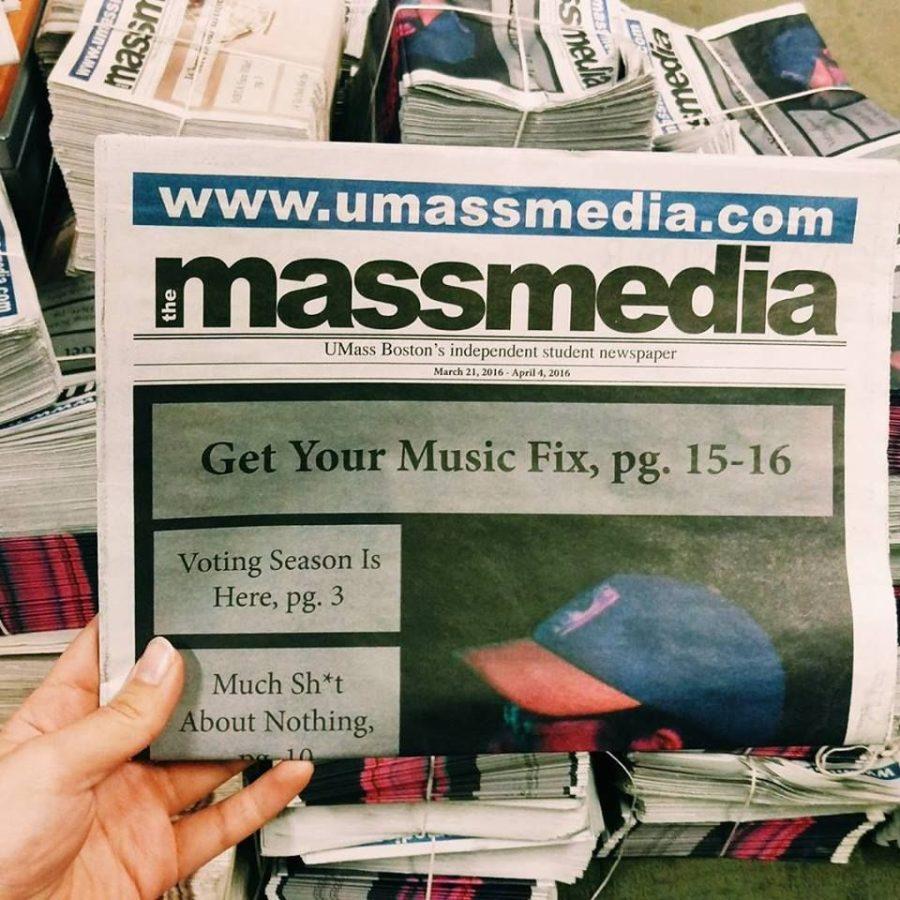I’ve been working at the Mass Media as a journalist for three academic years. I believe in holding individuals and entities accountable for their actions and the things they say, especially when they get it wrong. My own newspaper is no exception.
Two issues ago, we ran an article titled “The Power of Word Choice.” The author, who has OCD, wrote about how people say things like, “The weather has been bipolar lately,” and “I just killed myself studying,” and how these phrases hamper her personal recovery and contribute to a stigmatizing culture.
I applaud the Mass Media for running this piece. That said, our publication failed to put the lesson imparted to the community into its own practice. The main headline in the subsequent issue read, “Get Your Music Fix.”
Needing a music fix is cute and funny. So is a Chipotle fix. Needing a fix of heroin because your insides feel like they are twisting apart is not funny. Neither is needing a drink because you can’t stop shaking. The first usage of “getting a fix” describes mildly compulsive behaviors for the purpose of humor, and the second usage references physical dependence and the implied context of a genetic disease.
“[The first usage] distances the speaker from the problem, otherwise they wouldn’t use it in a joking way,” says American Studies Professor Rachel Rubin. The comedy is derived from how unlikely it is for that person to be an addict, and to be going through physical withdrawal.
“It’s so humorous because it’s so not true.”
Rubin also compared this usage to dressing up as a historical “other,” and then taking the costume off. For example, black face.
“It emphasizes difference. It doesn’t emphasize likeness.”
Andrea Macone is a grad student and administrator at UMass Boston, and in long-term recovery. Although she reiterated that she isn’t an expert, nor can speak for anyone else’s recovery, her perspective is crucial.
“For someone living in active addiction, in early recovery (typically considered within a year of last use), or even long-term recovery, certain words and images can trigger the cravings that define the disease of substance use disorder,” said Macone.
She says that although it’s unreasonable for drug references to be removed from the public lexicon, it’s important for the UMass Boston community to be cognizant that there are active addicts and people in recovery studying and working on campus.
Framing, discourse, and culture have real-world consequences.
“At this point in history, I see danger in trivializing addiction because it’s overwhelmingly stigmatized. Stigma breeds shame that prevents people from accessing lifesaving services,” says Macone.
At the Mass Media, a significant portion of our layout process is organic. There is no specific person to blame for “Get Your Music Fix.” I’m calling out the publication as a whole.
The main headline, emboldened, in a large font-size, and at the top of the front page, is not only the most attention-grabbing, it also denotes content that the paper considers most valuable to readers.
This is my last semester with the Mass Media. I hope future staff members think carefully about how they refer to their most valuable content, as well as the human implications.





















































